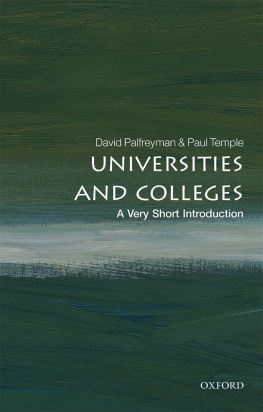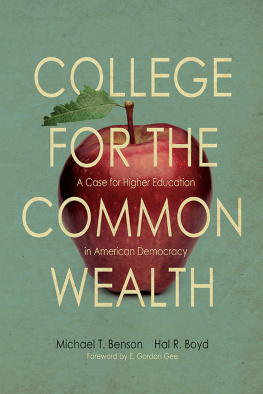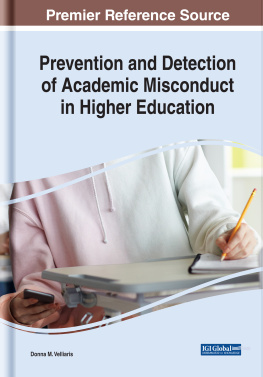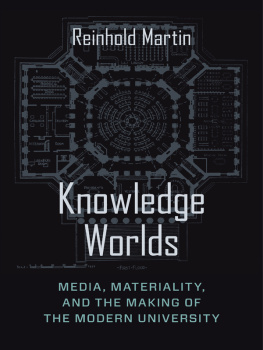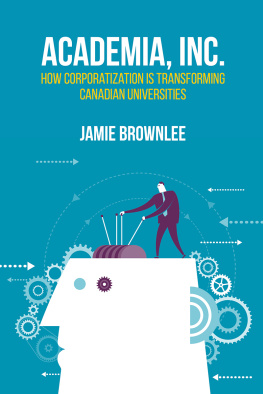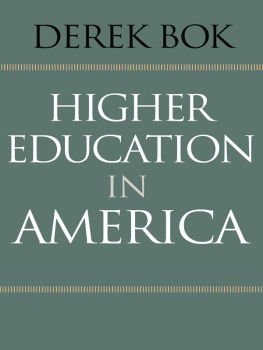ACADEMIC CAPITALISM AND THE NEW ECONOMY
ACADEMIC CAPITALISM and the NEW ECONOMY
Markets, State, and Higher Education
Sheila Slaughter and Gary Rhoades

2004 The Johns Hopkins University Press
All rights reserved. Published 2004
Printed in the United States of America on acid-free paper
Johns Hopkins Paperback edition, 2010
9 8 7 6 5 4 3 2 1
The Johns Hopkins University Press
2715 North Charles Street
Baltimore, Maryland 21218-4363
www.press.jhu.edu
The Library of Congress has catalogued the hardcover edition of this book as follows:
Slaughter, Sheila.
Academic capitalism and the new economy: markets, state, and higher education / Sheila Slaughter and Gary Rhoades.
p. cm.
Includes bibliographical references (p. ) and index.
ISBN 0-8018-7949-3 (hardcover: alk. paper)
1. Education, HigherEconomic aspectsUnited States. 2. Industry and educationUnited States. 3. Universities and collegesUnited StatesSociological aspects. I. Rhoades, Gary. II. Title.
LC67.62.S62 2004
338.4337873dc22
2003024783
A catalog record for this book is available from the British Library.
ISBN 13: 978-0-8018-9233-2
ISBN 10: 0-8018-9233-3
To Larry L. Leslie
Scholar and colleague, and much more
FIGURES AND TABLES
Figures
Tables
ACKNOWLEDGMENTS
The writing of this book benefited from the support and input of many agencies, organizations, and colleagues. Much of the data and analysis received substantial support from the National Science Foundation, which funded the following research: Universities in the information age (SDEST); Creating flexible structures of academic work (STS); Steps toward resolving ambiguities in university-industry relationships (SBR); Academic science policy and the Clinton administration (EVS); Protecting the publics trust: A search for balance among benefits and conflict of interest in university-industry relations (SBER-RST); and The effects of research related activities on undergraduate education (SBR). We are especially grateful to supportive program officers Rachelle Hollander and Len Lederman and to the colleagues with whom we conducted these studies and with whom we wrote articles that contributed to this bookLarry L. Leslie, Ron Oaxaca, Samantha King, Teresa Campbell, Jen Croissant, and Andrea Hoplight Tapia. We thank other colleagues with whom we co-authored articles that inform this book: Cynthia Archerd, Ben Baez, Rachel Hendrickson, Margaret Holleman, Chris Maitland, Brian Pusser, Barbara Sporn, Scott Thomas, and Cindy Volk. Additionally, we deeply appreciate the insights and criticism of colleagues who read chapters of this book or articles that contributed to this book: Debbie Anderson, Ernie Benjamin, John Cheslock, Joan Hirt, Ken Koput, Rob Rhoads, and Doug Woodard. Over eighteen years Doug has raised a range of issues about the role of student services in the academic capitalist knowledge/learning regime and reminded us that colleges and universities must attend to undergraduate education and student development. To our new colleague, Jenny Lee, our thanks for pushing us to more explicitly place ourselves in relation to the academic capitalist knowledge/learning regime.
In addition to these principal investigators, we thank the many graduate students who worked on these grants. Thanks also to Sheilas Academic Capitalism seminar in spring 2003 who sharpened our thinking and writing: Tamara DeStefanis, Teri Knutson-Woods, George McClelland, Jeff Orgera, Marcus Machado, Charles Rice, Vernon Smith, Glen Williams, and Greg Wilson. Special thanks to Amy Metcalfe, who participated in all the above activities, was a dedicated research assistant, and helped us realize the possibilities of intermediating organizations.
The database of collective bargaining agreements (the Higher Education Contract Analysis System), which enabled us to explore the policy dimensions of academic capitalism in the new economy in community colleges and comprehensive universities, was developed and made available through the good work and generosity of the National Education Association and the American Federation of Teachers. We particularly thank Christine Maitland and Rachel Hendrickson at the NEA. We appreciate as well the feedback and support of Larry Gold at the AFT.
Further, we also owe a debt to each other. Over the course of seventeen years of conversations and exchanges ranging over political economy, professions, policy, and organizations in higher education, and much more, we have challenged and stretched each other in ways that have enhanced and brought out the best in our work and lives.
Finally, we dedicate this book to Larry L. Leslie, whom we could not pull away from the joys of retirement, poker, hiking, and county politics to co-author this volume. In more ways than we can enumerate, Larry has influenced our work and shaped the very special Center for the Study of Higher Education in which our work has thrived. His contributions, for each of us, in distinctive but profound ways, go well beyond the boundaries of simple colleagueship. To Sheila Slaughter, who is S2, he is L3, and a partner nonpareil who grounds her in the realities of hiking, camping, hunting, and country western dancing. To Gary Rhoades, whose unparalleled partner is his wife, Janet, centering him in the realities of an eternal Enchanted April, and of being a dad making Knots in a Counting Rope with Elizabeth and Olivia, Larry is and always will be, simply and affectionately, Chief.
ACADEMIC CAPITALISM AND THE NEW ECONOMY
1
THE THEORY OF ACADEMIC CAPITALISM
A T THE TURN OF the twenty-first century, the rise of the new, global knowledge or information society calls for a fresh account of the relations between higher education institutions and society. Our analysis of these relations has led us to develop a theory of academic capitalism which explains the process of college and university integration into the new economy. The theory does not see the process as inexorable; it could be resisted, or, more likely, alternative processes of integration could be developed. Nor does the theory see the university as being corporatized or subverted by external actors. Instead, the theory of academic capitalism sees groups of actorsfaculty, students, administrators, and academic professionalsas using a variety of state resources to create new circuits of knowledge that link higher education institutions to the new economy. These actors also use state resources to enable interstitial organizations to emerge that bring the corporate sector inside the university, to develop new networks that intermediate between private and public sector, and to expand managerial capacity to supervise new flows of external resources, investment in research infrastructure for the new economy, and investment in infrastructure to market institutions, products, and services to students. Expanded managerial capacity is also directed toward restructuring faculty work to lower instructional costs (although not costs generally).
The theory of academic capitalism moves beyond thinking of the student as consumer to considering the institution as marketer. When students choose colleges, institutions advertise education as a service and a life style. Colleges and universities compete vigorously to market their institutions to high-ability students able to assume high debt loads. Student consumers choose (frequently private) colleges and universities that they calculate are likely to bring a return on educational investment and increasingly choose majors linked to the new economy, such as business, communications, media arts. Once students have enrolled, their status shifts from consumers to captive markets, and colleges and universities offer them goods bearing the institutions trademarked symbols, images, and names at university profit centers such as unions and malls. College and universities also regard their student bodies as negotiable, to be traded with corporations for external resources through all-sports contracts, test bed contracts, single product contracts, and direct marketing contracts. When students graduate, colleges and universities present them to employers as output/product, a contribution to the new economy, and simultaneously define students as alumni and potential donors. Student identities are flexible, defined and redefined by institutional market behaviors.
Next page

